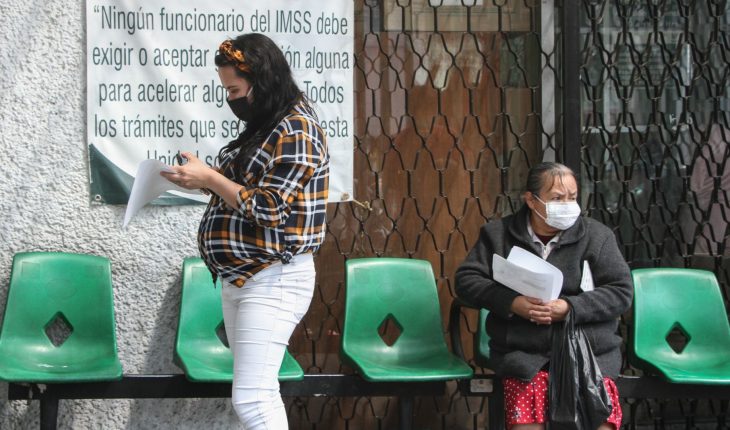After several days of analysis, the Supreme Court of Justice of the Nation (SCJN) concluded that the practice of surrogacy in Mexico altruistically or in exchange for an economic benefit is constitutional even if requested by foreigners in our country, but urged that there be better regulation at the national level in this regard.
You may be interested in: Surrogacy: where it is legal, it is not regulated
The highest court yesterday closed the fourth and final day of debates on this issue by invalidating an article of the legislation of Tabasco, one of the two states where this practice is allowed, which limited access to this service only to citizens of Mexican nationality.
During the session that was held through videoconference, the ministers agreed that the rent of a womb to gestate a pregnancy is a legitimate act of commerce whose hiring cannot be limited only to Mexican citizens, since this violates the principles of equality and non-discrimination, and freedom of trade enshrined in the Constitution.
At the same time, the ministers considered that it is valid, as the law in Tabasco states, to require that the signing of a surrogacy contract be made before a notary public, since it is a rational requirement that gives certainty of the process to both the contractors and the manager.
However, both The President of the Court Arturo Zaldivar, and the majority of the ministers, agreed on the need for the federation and states to regulate surrogacy or assisted pregnancy in an approved manner, in order to create a legal framework that protects the rights of the unborn child, the managing mother and the contracting couple.
Prohibiting assisted pregnancy, the highest court added, would only lead to its clandestine practice with the serious public health problem that this entails. But this does not exempt the executive and legislative branches from creating conditions conducive to its safe conduct.
“Surrogacy is a complex phenomenon surrounded by value judgments, which requires identifying the rights at stake, particularly those of the most vulnerable. A comprehensive regulation is required that puts the best interests of children at the center,” minister Zaldivar said.
What the Court concluded
The SCJN analyzed during the last two weeks the validity and scope of surrogacy in Mexico. It was the first time that the country’s highest court debated the issue, after the then PGR challenged tabasco’s legislation that gave the green light to the practice for five years.
Among the conclusions reached by the ministers in the four days of discussion is, from the outset, the validation of this practice either as an altruistic act or as a service contract in exchange for an economic benefit.
Minister Norma Piña, who prepared the draft on the basis of which the debates were held, stressed that on this basis it is urgent to build a better legal framework to guarantee maximum protection of human rights, as has been done in some states with the legal interruption of pregnancy.
“Prohibiting this practice (surrogacy) would generate greater clandestinity and greater risks for pregnant women, as well as uncertainty for children born, since the State cannot offer protection to the parties, monitor the conditions of compliance with contracts, and ensure that the performance of clinics and agencies is in accordance with human rights,” the minister said.
Once the legality of this practice was resolved, the Court determined that both surrogacy and that performed through a contract and in exchange for an economic benefit are valid.
Only two ministers, Juan Luis González Alcántara and Alberto Pérez Dayán, spoke out against an economic benefit for this service, considering that it was comparable to the sale of a child. Zaldivar and the rest warned that the ban would not stop this practice and would only lead to an unregulated “black market” of surrogacy.
Piña also stressed that the charge for pregnancy should not be seen as the sale of a minor, but as the right of a woman to decide whether or not to provide a pregnancy service and, therefore, whether to charge for it or not.
One point that the Court did dismiss from the Tabasco law was a clause that established that the managing mothers could claim custody of the children if the contracting couple died or if for some reason they were unable to continue with the care.
Read more: Notes on surrogacy
On the third day of analysis, the justices of the Court decided that it is valid for specialized agencies to act as intermediaries in theráctica of surrogate pregnancy, and that obtain an economic benefit for it. This was a point disputed by feminist organizations that point out that such agencies profit from the exploitation of women’s bodies.
And in the fourth session, which was held yesterday, the Court endorsed what has already been mentioned above: that it cannot be prohibited to hire foreign couples from hiring a woman manager, and that it is valid that contracts be notarized.
The appeal was repeated for the federation and the states to create the necessary regulatory framework to regulate assisted pregnancy under the parameters outlined by the ministers.
What we do at Animal Politico requires professional journalists, teamwork, dialogue with readers and something very important: independence. You can help us continue. Be part of the team.
Subscribe to Animal Politico, receive benefits and support free journalism.#YoSoyAnimal





